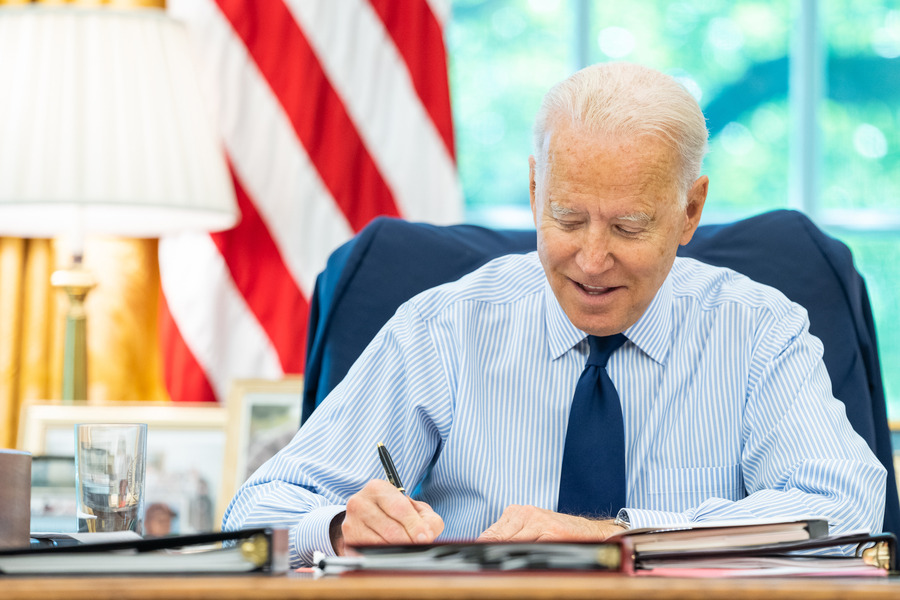Al Alwi Argument Preview
(with Benjamin Wittes) On Thursday, D.C. Circuit Judges David Tatel, Merrick Garland, and Stephen Williams will hear oral arguments in Al Alwi v. Obama. The argument will proceed in open session, followed by a closed session if necessary. Ramzi Kassem will argue for the petitioner, and Sarang Damle will argue for the government. The case is an appeal from a decision by U.S. District Judge Richard Leon denying Moath Hamza Al Alwi’s habeas corpus petition.
Published by The Lawfare Institute
in Cooperation With

(with Benjamin Wittes) On Thursday, D.C. Circuit Judges David Tatel, Merrick Garland, and Stephen Williams will hear oral arguments in Al Alwi v. Obama. The argument will proceed in open session, followed by a closed session if necessary. Ramzi Kassem will argue for the petitioner, and Sarang Damle will argue for the government. The case is an appeal from a decision by U.S. District Judge Richard Leon denying Moath Hamza Al Alwi’s habeas corpus petition. Al Alwi was one of the first merits decisions to follow the Supreme Court’s decision in Boumediene. Judge Leon denied the petition on December 30, 2008--just six months after the Supreme Court ruled. The speed of the Al Alwi merits opinion highlights a feature of Judge Leon’s approach to his habeas cases that sets him apart from his colleagues on the D.C. District Court. Several of Judge Leon’s cases proceeded to disposition much more quickly than did his colleagues’ cases; in fact, Judge Leon decided all of the first five merits cases that came down after Boumediene. On the one hand, this pace shows that Judge Leon took to heart the Supreme Court’s admonition in Boumediene that "the costs of delay can no longer be borne by those who are held in custody." On the other hand, however, his tempo has led to issues on appeal that his colleagues probably will not face. As a general matter, his written opinions tend to deal with the evidence in a more summary and less detailed fashion than do those of his colleagues, and the speed with which he handled Al Alwi is now being challenged as being prejudicially hasty. In Judge Leon’s unclassified opinion, he wrote that the government’s evidence proved that the petitioner was “lawfully detained as an enemy combatant because it is more probable than not that he was ‘part of or supporting Taliban or al Qaeda forces’ both prior to and after the initiation of U.S. hostilities in October 2001.” In the more detailed opinion (formerly classified, now released with redactions), however, Judge Leon described his conclusions more fully. First, he found that the petitioner had stayed at guesthouses that had “strong connections” to Al Qaeda and that the petitioner, “at a minimum, was ‘supporting’ the Taliban” on two combat fronts. He also wrote that Al Alwi’s involvement with the Omar Sayef Group, a fighting force the petitioner admitted was associated with the Taliban, amounted to “participating” in the unit and that he was “subject to the orders of the unit’s leaders.” Finally, Judge Leon found that Al Alwi had received military training at a camp associated with the Taliban, and that he was “with and was supporting Taliban forces” after September 11th. On appeal, Al Alwi argues that Judge Leon’s decision suffers from three principal defects: First, Al Alwi claims that Judge Leon’s scheduling and discovery orders denied him a “meaningful opportunity” to challenge his detention. Basic logistical constraints inherent in the Guantánamo habeas litigation, he claims, “tied” the hands of his lawyers, but the district court also wrongfully denied his request for a continuance. This, he argues, further restrained his lawyers’ ability to prepare his case or develop a trusting attorney-client relationship. He contends that Judge Leon’s denial of a continuance was “arbitrary and capricious,” and that he “hurtl[ed] toward a hearing without due regard for Mr. al-Alwi's constitutional right that the hearing be meaningful.” The government responds that Al Alwi was not actually prejudiced by these orders, in large part because he had more than 15 months to prepare a defense after gaining access to the unclassified CSRT record in August 2007. The government, citing to the Boumediene language discussed above, also points out that the petitioner himself actually opposed the government’s request for an extension of time to file its return, and that this opposition undercuts his challenge to the district court’s denial of his own requests for additional time. In reply to this argument, the petitioner draws a distinction between the two requests, noting that responding to the government’s “massive” return required additional, and that he could not have foreseen this need when he opposed the government’s motion weeks before. In the same vein, Al Alwi challenges the district court’s rulings regarding 1) his discovery requests and 2) the government’s disclosure of exculpatory evidence. He argues that several of Judge Leon’s rulings were “flatly inconsistent” with orders in other Guantanamo cases—and that his requests should have been granted. The government responds that the rulings Judge Leon made were within the bounds of the case management order (“CMO”) in the case, and that the order itself contained standards identical to those the D.C. Circuit upheld in Bensayah. Next Al Alwi challenges the district court’s ruling regarding the government’s disclosure of exculpatory evidence. Under the CMO, the government had a standalone obligation to disclose “any evidence contained in the review in developing the return for the petitioner…that tends materially to undermine the Government’s theory.” Yet, after the government’s initial disclosures, Al Alwi’s counsel obtained through independent means two documents undermining the credibility of a government witness. The government had not turned over the documents in its own production. The petitioner argued at a discovery hearing that this revealed a violation of the CMO and requested additional searches and disclosures; Judge Leon, however, disagreed. Al Alwi thus urges the D.C. Circuit remand on the issue, seeking clarity on what exactly the government did review prior to its production. On this question, the government reiterates its position as presented at the district court—that the additional documents fell outside of the CMO’s requirements because they were found in the course of reviewing a different petitioner’s files in a different habeas case. The government also highlights the district court’s finding that, regardless, the government's initial production of documents gave Al Alwi substantively the same information as the later-discovered documents, and that the district court's conclusions in any event did not rely on evidence undermined by those documents. Al Alwi’s second major argument concerns the scope of the government’s authority to detain individuals who were “part of” or “supporting” Al Qaeda or the Taliban. In particular, he contends that the government’s decision to replace the Bush-era “support” standard with the Obama administration’s mildly more stringent “substantial support” standard—after Judge Leon had already decided Al Alwi's case using to the lower standard—requires the D.C. Circuit to remand the matter for findings under the new standard. The government counters with the D.C. Circuit’s opinion in Al Bihani, arguing that a remand is unnecessary because, as in Al Bihani, the facts as found by the district court show that the petitioner “had a clear role as part of Taliban and al-Qaida fighting forces.” Al Alwi further argues that the government lacks authority to detain individuals who are not “supporting” or “part of” a group associated with the Taliban or Al Qaeda at the time of the habeas hearing. The petitioner argues this in two steps: First, he attempts to lay out a slightly different standard applicable to “associated forces”—that, in contrast to relationships with Al Qaeda or the Taliban directly, relationships with “associated forces” must be shown to exist “at the time of the [habeas] hearing.” Next he argues that, because the district court made no finding that the associated force, the Omar Sayef Group (“OSG”), was engaged in hostilities at the time of the hearing, the government had failed to meet its burden. The government rejects this argument, contending that it flows from the “flawed premise that OSG is somehow distinct from al-Qaeda or the Taliban”—a premise it contends is unsupported by facts on record. Al Alwi’s third main argument concerns the district court's handling of evidence. First, Al Alwi argues that the district court erred in basing its findings on the petitioner's uncorroborated out-of-court admissions, and he urges the court to adopt a per se rule prohibiting the use of such statements. He makes this argument by referencing the analogous per se rule used in criminal cases, contending that the same rule should apply in his habeas challenge. The government responds that no such rule is appropriate here, and that that it was, in any event, essentially satisfied because the record contains ample corroboration of Al Alwi's statements. Al Alwi also argues that the district court erroneously accepted as reliable the petitioner’s internally inconsistent prior statements. To this contention, the government responds that the petitioner’s counsel actually conceded or failed to contest many of these statements at the hearing, and that the district court acted within its discretion in crediting some but not others of them. The government has the same response to the petitioner’s contention that the district court erroneously failed to discredit statements that Al Alwi argues were due to “harsh” treatment. Judge Leon's discretion on both types of statements, the government argues, is reviewable only for clear error. Here are the petitioner’s merits brief, the government’s brief, and the petitioner's reply brief. For those interested, the more detailed district court opinion is available in redacted form as part of the parties' public Joint Appendix filed on October 25th.




